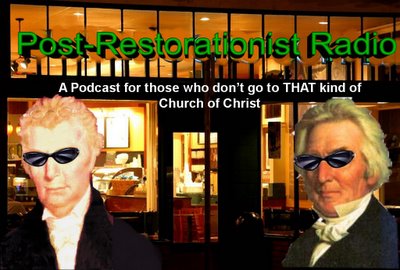Well, this is it for my review of "The Secret Message of Jesus" by Brian McLaren. I have really enjoyed reviewing it here, and I hope this has been helpful and stirred your interest. I'll post a modified version of it closer to the time that it will be actually released, and also plan on posting a MUCH shorter review on Amazon.
The book ends with 3 short appendicies. Normally I wouldn't review appendicies, but these are quite good and worth mentioning.
Appendix 1: "The Prayer of the Kingdom"
Here McLaren explores "the Lord's Prayer". He mentioned it earlier in the book, but here he gives it a more thorough treatment by breaking it down and discussing what each part of it might mean (particularly given it's historical context). This is generally an excellent treatment, and quite valuable in the discussion.
Appendix 2: "Why Didn't We Get It Sooner?"
Here, McLaren anticipates a criticism and answers it. He notes that most of the scholars and theologians he has referenced are contemporary. He then recognizes that some might wonder if what he's proposing is actually in the text or if its being
read into the text. If this has always "been there", then why is it noticably absent from much of the scholarship of church history. If this is true, then why does it seem so new to most of us. McLaren offers 8 factors that help to answer exactly these questions. One may anticipate a "cop-out" here, but that certainly isn't what he delivers. McLaren's 8 factors are quite thought provoking indeed, and not easily dismissed. I think it was very wise for him to address these issues here.
Appendix 3: "Plotting Goodness"
This is McLaren's "Now what?" chapter. If you buy this stuff, what can you do with it? He simply offers some suggestions for how you might proceed. These few pages are very practical and I hope that many take him up on them.
I sincerely hope you pick this book up. It wouldn't be a bad idea to pre-order it.
AE






